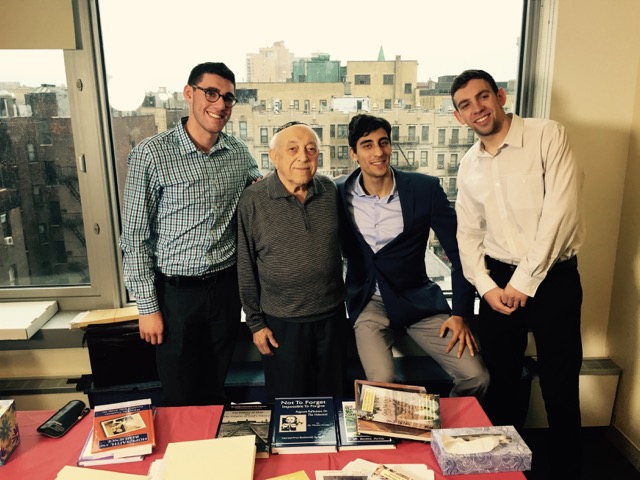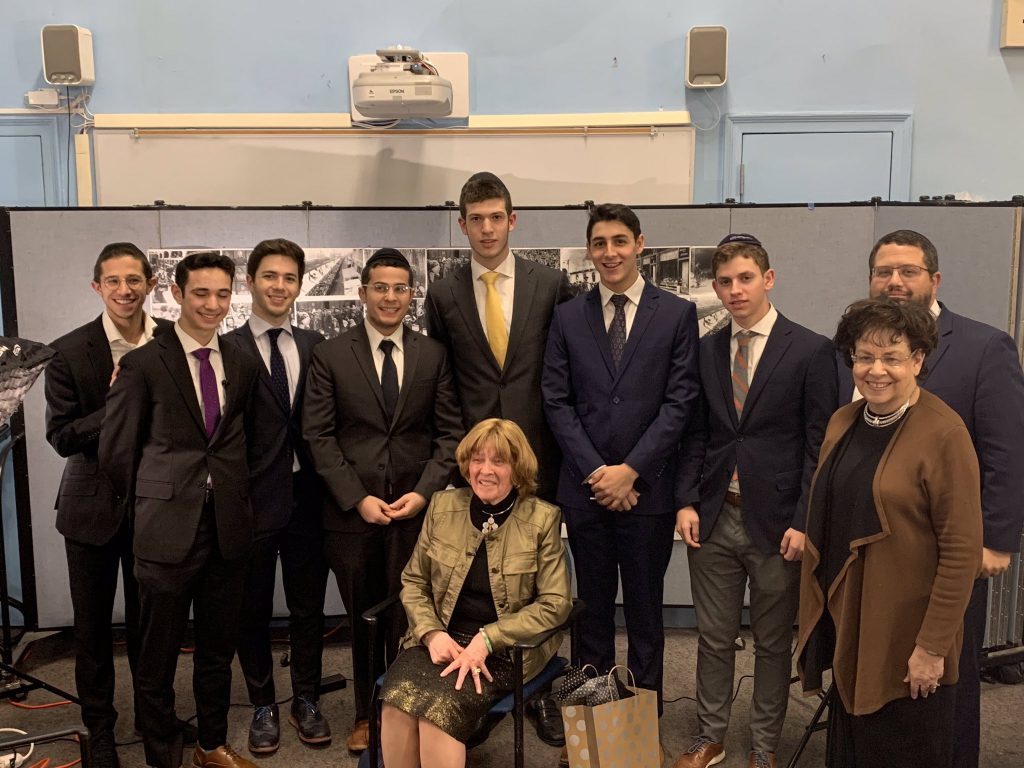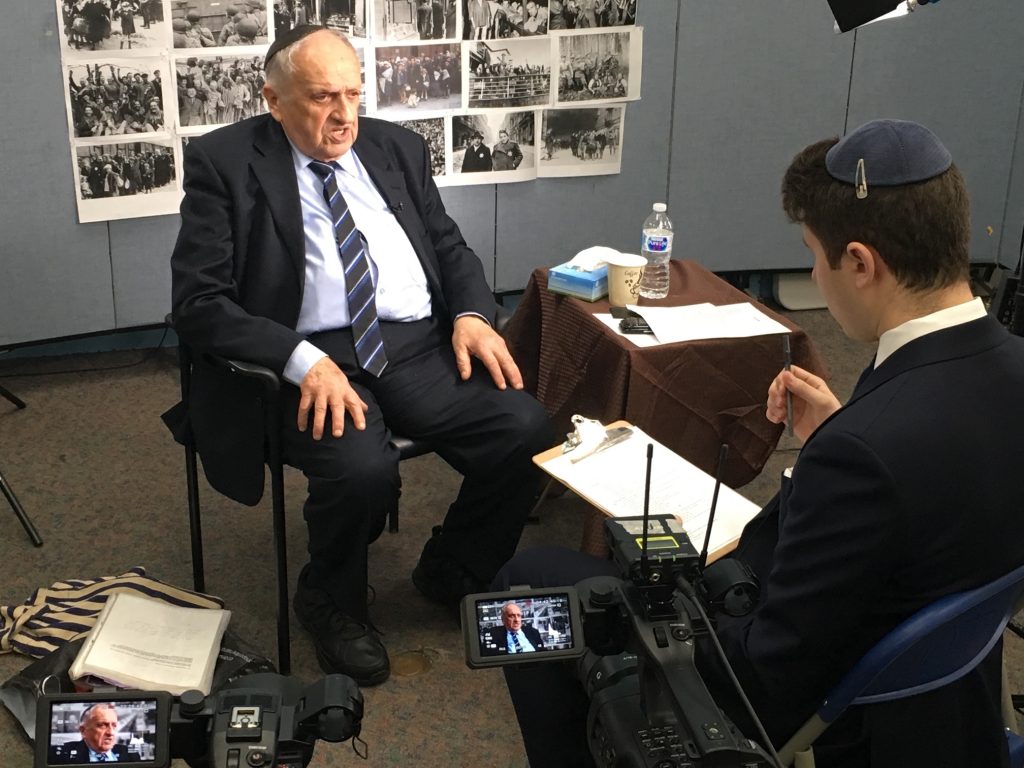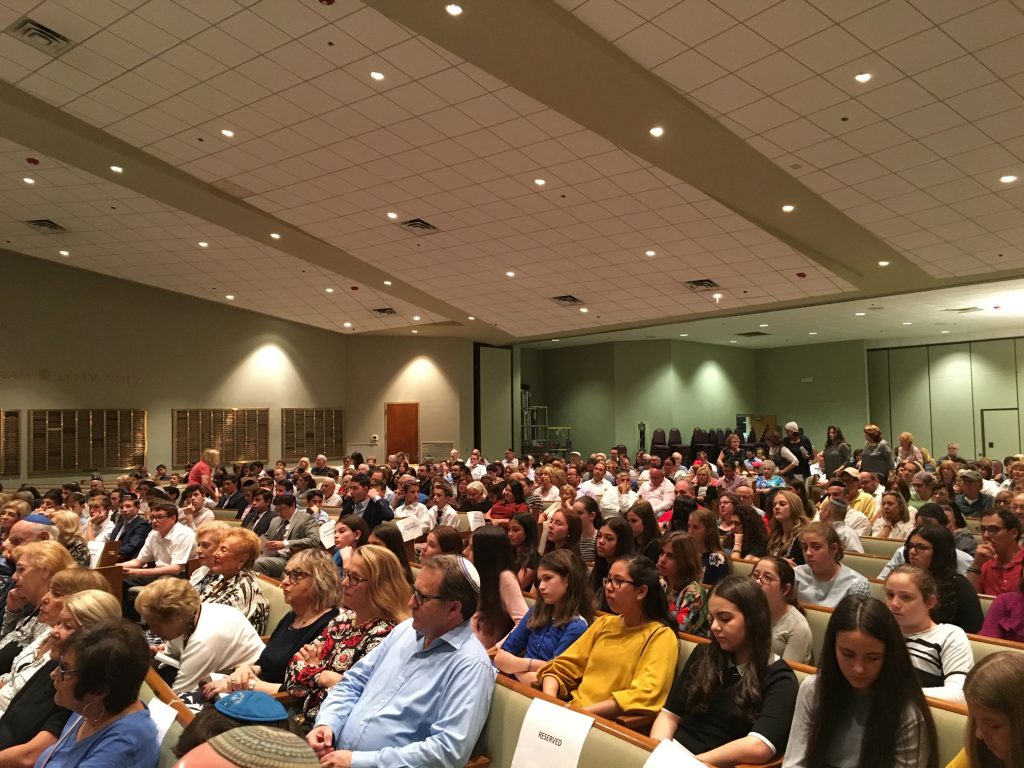 In loving memory of Dr. Moshe Avital, Holocaust scholar, educator, author, and speaker, whose unwavering faith, courage, and resilience inspired so many.
In loving memory of Dr. Moshe Avital, Holocaust scholar, educator, author, and speaker, whose unwavering faith, courage, and resilience inspired so many.Lessons from History – innovative educational Jewish history programs
Seventeen years ago, as a day school principal, I created an experiential project to add to our Holocaust studies curriculum. I quickly realized that only a small window of opportunity remained in which Holocaust survivors with conscious memories of the cataclysm inflicted on the Jewish people could still communicate their incredible tales, thereby honoring – and passing on – the mission many of them received from their parents: “to live, to remember, and to tell the world.”
The program I devised, “Names, Not Numbers,” inaugurated at two Yeshiva University High Schools, has spread to over one hundred junior high and high schools, and universities across North America and in Israel. The project transforms Holocaust education by taking it beyond traditional classroom walls and turning it into an interactive, creative, and empowering experience for students. To date, more than 6,000 students have interviewed, filmed, and edited the testimonies of some 2,500 survivors and World War II veterans throughout the U.S., Canada, and Israel. The four hundred documentary films produced so far have been viewed by more than seventy thousand people worldwide and archived by the National Library of Israel, Yad Vashem, and Yeshiva University.
 Rebbetzin Chaya Small – daughter of Rabbi Shmuel David and Rebbetzin Tzvia Walkin, who received visas from Sugihara and took refuge in Kolbe and Shanghai with the Mir Yeshiva – with students from Yeshiva University High School MTA (Marsha Stern Talmudical Academy)
Rebbetzin Chaya Small – daughter of Rabbi Shmuel David and Rebbetzin Tzvia Walkin, who received visas from Sugihara and took refuge in Kolbe and Shanghai with the Mir Yeshiva – with students from Yeshiva University High School MTA (Marsha Stern Talmudical Academy)Encountering Survivors
Hearing a first-person account allows the student to become familiar with the face, heart, and spirit of an eyewitness, forging a personal connection to history. Survivors aren’t just telling their story, they’re reliving it, and students relive it with them. Sharing their experiences is their gift to both present and future. The survivors are witnesses, and the students can become – must become – witnesses to the witnesses.
As Chaim Weiser, a survivor participating in the project, wrote:
We Holocaust survivors are an endangered species. Before too long, the last of the witnesses to the slaughter of our loved ones, will, regrettably, cease to exist. It is therefore of the utmost urgency that we double our efforts to bring living testimonials to future generations.
Many of those interviewed have never told their stories. Living alone with their recollections, these survivors benefit from social interaction. Intergenerational friendships are often forged as students come to understand the communities their interviewees came from, what their lives were like before the Nazis’ arrival, and what message they have taken from their past to hand on to the generation of the future.
In 2019, Tal Naider, an eighth-grader at Fort Lauderdale’s Brauser Maimonides Academy, summed up the program’s uniqueness:
Being a part of “Names, Not Numbers” was definitely one of the greatest things I’ve ever done. We’ve all read books about the Holocaust. We’ve all read news articles. But now, we had the opportunity to speak to some of the most incredible people we’ll ever meet – survivors themselves.
 MTS students interview Dov Landau, survivor of Auschwitz and Buchenwald
MTS students interview Dov Landau, survivor of Auschwitz and BuchenwaldTools of the Future
Throughout the project, journalists and editors, filmmakers, and history teachers prepare students to create Holocaust oral history documentaries that will become a permanent part of museums and major academic institutions. This program equips young people with tools they perceive as essential in today’s media-obsessed world: filming and character portrayal, interview and research skills. More important, these tools can combat the silent apathy that so easily envelops humanity when morality goes astray.
Dr. Michael Berenbaum, former director of the U.S. Holocaust Research Center at USHMM, and former president and CEO of the Shoah Foundation, whose work has won Emmy and Academy awards, joined “Names, Not Numbers” as a consultant from the very beginning. “Names, Not Numbers” engages students on many levels, working in groups and alone, reading, listening, creating, and reflecting. It’s a fabulous teaching tool and a compelling, moving, and life-changing experience for them,” he explained.
The media professionals who work with the students spend hundreds of hours reviewing and editing the footage to produce the Movie in the Making for each school, including students’ reflections on the process and a student-edited excerpt from each of that year’s interviews. These men and women are also affected, becoming ambassadors for this process of documenting testimonies and preserving memory.
Moreover, the students themselves are interviewed throughout, and their reflections are included in the final film. Viewers of the documentaries thus watch the transformation and transmission of living history.
The climax of the program is an end-of-year event in which each school brings together students and their families, teachers, and survivors for a screening of its film and a tribute to all who have given of themselves to relive the unthinkable. This final widening of the circle allows viewers to appreciate the transformative power of the transmission of living history.
 Concluding event of the Names, Not Numbers© program, bringing students, survivors, educators and media professionals together
Concluding event of the Names, Not Numbers© program, bringing students, survivors, educators and media professionals togetherRabbi Dr. Jacob J. Schacter, professor at Yeshiva University, shared the story of his father, Rabbi Herschel Schacter, the first Jewish chaplain to enter Buchenwald, and said that his participation fulfilled three important roles:
One, it honors the victims, whose only wish was to be remembered. Two, it shows the survivors who lived through inexplicable horror that there is life and there is joy and there is family on the other side. Three, it gives the students a chance to be inspired and come face to face with people who were bona fide heroes.
Going Public
“Names, Not Numbers” recently expanded to public schools and has proven a most effective way of teaching students of all races and creeds about the Holocaust, the Jewish experience, and the wisdom of generations past.
Gary Pretsfelder, principal of Schechter Manhattan Day School, reflected on the importance of this type of Holocaust education:
It’s hard to overemphasize the strength and power of the “Names, Not Numbers” initiative. This progressive and innovative way of teaching about the Shoah guides students in thinking about the messages and lessons of the Holocaust and their own relationship to a significant event in Jewish and human history.
Our students were challenged and inspired. They were fully engaged from beginning to end, captivated by the survivors themselves and moved by their stories, their will to live, and their ability to transition eventually from their horrors to fulfilling and meaningful lives.
“Names, Not Numbers” challenged kids to think about what the Shoah means to them on a personal level and consider how to act on the takeaways they’ve gained in their lives and communities. A ninety-year-old and a thirteen- year-old in dialogue, passing on our people’s story and values – it doesn’t get more powerful than that.
Year after year, the project captures the heartrending and soul-ennobling power of grappling with the horrors of the Holocaust. It is a life-affirming experience for both students and survivors, confirming that the latter’s “names, not numbers” are the core of who they are and of the legacy they leave us.
